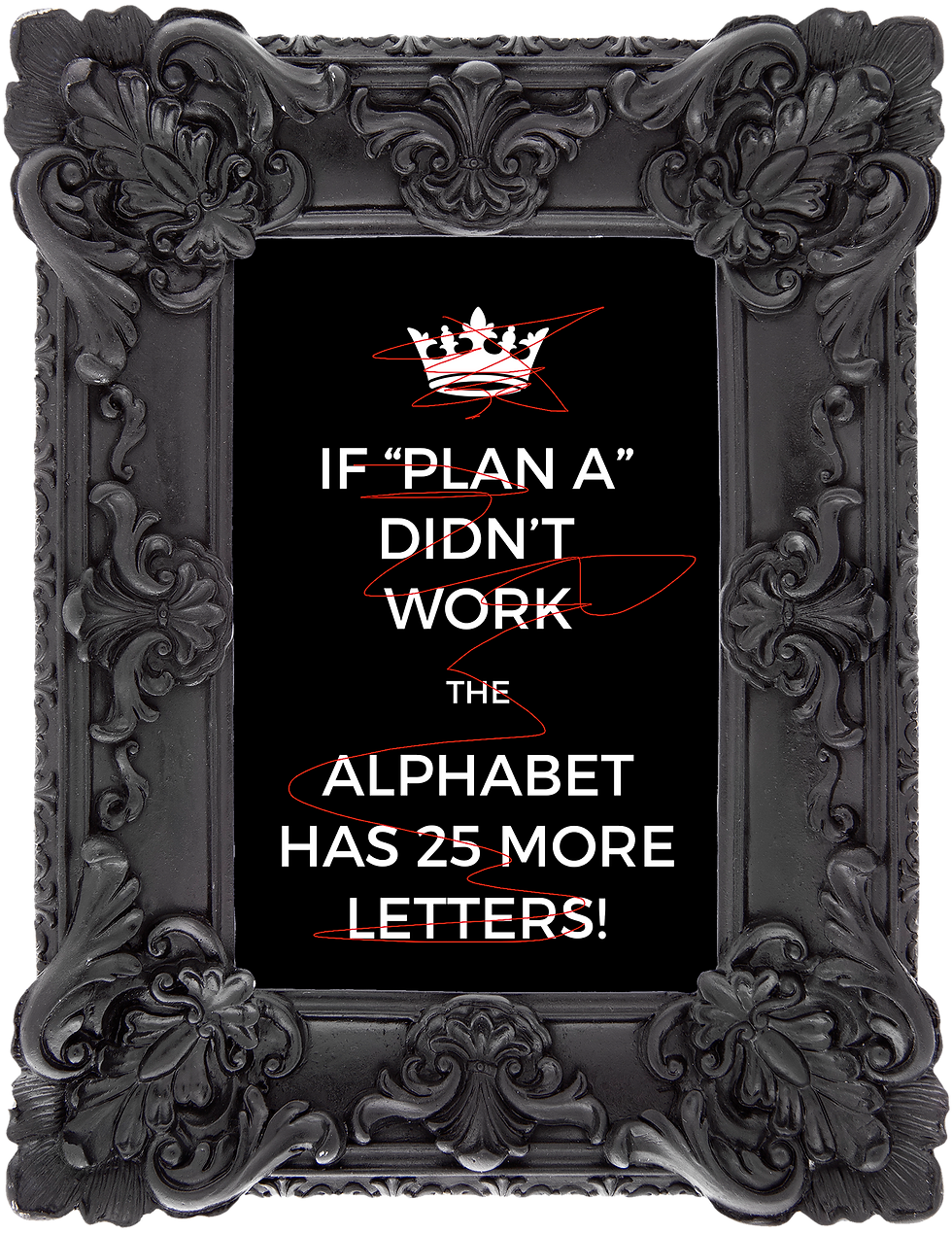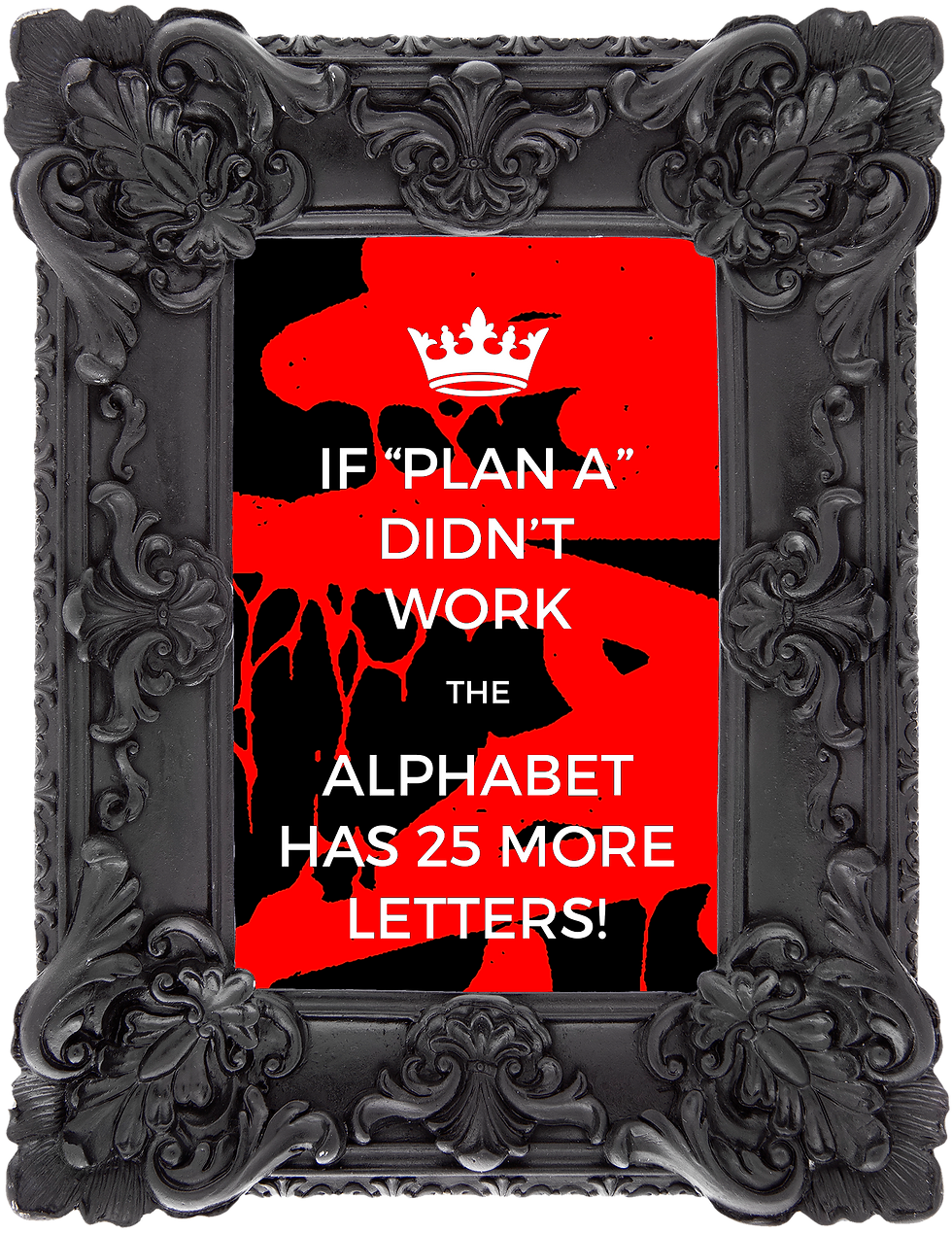
An optimistic perspective on failure as instructive or a vehicle for positive growth, Cioran would argue, is what ultimately leads to hopelessness and psychic despair, because it assumes the existence of a purpose to which we can aspire.
There’s no shortage of aphorisms about failure. Writers, artists, politicians, athletes, and most everyone who’s ever pursued anything of substance or value (at least perceived) has faced the existential prospect of falling short. Most sum up their experiences with some variation on the theme that if your effort is total, earnest, and in good faith, there is no such thing as failure. That as long as you learn from your errors, no failure is complete, and that if your goal is worthy, failure is equally inevitable and commendable. This is probably most succinctly captured in Samuel Beckett’s criminally decontextualized dictum, “Fail better.”
Whether delivered with such curt, grave cogency or the mellifluous prose of some thoughtful modernist gazing out a window at the rain, little separates these notions from the vacuous banalities of today’s more marketable sports stars, who for example might credit a hunger for excellence and continued improvement to particularly dramatic losses, errors, or imperfections in the same way a sculptor might regretfully resign herself to the idea that her work, no matter how praised for its arresting beauty and immediacy, will always remain deficient next to that of Michelangelo. The most thoughtful analysis of humanity’s relationship to failure is, when paraphrased, inevitably trite and simplistic.
The concept, however, still lends itself to a lot of thought. Is it worth trying to go deeper? How might one do so?
* * * *
Born in Romania in 1911, Emil Cioran developed over his career a philosophy of pessimism preoccupied with themes of failure, suffering, and social decay. He wrote in both Romanian and French, most famously in aphorisms he called “fragments,” which composed books with such appealing titles as The Trouble with Being Born and On the Heights of Despair. Initially, Cioran’s work reads just like you think it would: It’s bleak, contemplative, indulgent. It’s also often very funny, and as you absorb it, something surprising happens: You begin to feel a bond, even a warmth —something connective and enriching that simmers beneath the surface of his unyielding, somehow urgent ennui.
For Cioran, this affinity was only achievable through the conceit that failure is inevitable, life is meaningless, and society is absurd. His resonance is like that of Goethe, whose early romantic novel The Sorrows of Young Werther (an unfortunate guiding light for bespectacled and self-serious young men on college campuses across the Northeast US) is similarly passionate, contradictory, and extreme, plumbing the depths of failure and despair in order to make the reader feel less alone.
An optimistic perspective on failure as instructive or a vehicle for positive growth, Cioran would argue, is what ultimately leads to hopelessness and psychic despair, because it assumes the existence of a purpose to which we can aspire. Such optimism cannot reckon with what he saw as the fundamental absurdity of one's existence: the daily choice to continue. To endure. Modernity amounts to a distraction for Cioran, yet in qualifying individual existence as wholly peculiar and unimportant, he performs a trick of perspective, succinctly revealing an ultimate message of hope with dark, paradoxical jokes: "It is not worth the bother of killing yourself," he writes, "since you always kill yourself too late." Despairing in despair, then, is far more ridiculous than embracing and finding joy in it. Finding meaning and happiness in life begins with accepting that you can't. Emil Cioran died in 1995, at the age of 84, survived by Simone Boué, his partner of more than 50 years.
* * * *
In his 1947 novel The Plague, Albert Camus imagines the effect of a deadly epidemic of bubonic plague that tears through the fictional Algerian city of Oran. Oran is an ordinary city, populated by ordinary people doing ordinary things. As the story unfolds, a tension builds between the institutions of this quotidian modernity and the impassive wall of mortality, itself ordinary and naturally ordered. As the city's institutions — of healthcare, commerce, communication, labor, etc. — begin to fail, Camus exposes the unconscious trepidation at the root of society: In curating the comforts of an ordinary life, the citizens of Oran have built up a psychic wall against mortality, fabricating a system of moral capital that defines death as a failure of existence rather than a simple, dignified, necessary component of a natural order.
In refuting this order, Camus and Cioran suggest, we become the architects of our own despair. It is only through the acceptance of this absurdity that we can discover purpose and merit in the diminishment of suffering, however futile, ephemeral, or modest our efforts. And for most of us, even this remains elusive and ambiguous. In one of his most moving, haunting lines, Camus speaks through the character of Dr. Rieux, who has fought the plague in Oran for months:
"This whole thing is not about heroism, it's about decency. It may seem like a ridiculous idea, but the only way to fight the plague is with decency."
Asked what decency is, however, Dr. Rieux can only sigh. For him, it means doing his job.
But in general, he can't really say.
All Things Ordinary
By Andrew McDonald















I was asked to write about failure; my first thought was you came to the right place. Failure and I have had a long relationship. My dream career as a kid growing up during the Apollo era was to become an astronaut. Or a professional hockey player. Both of those dreams, as you might imagine, died young.
I was having a hard time holding down steady work in my chosen career. I’ll tell one story to illustrate the situation. I started a freelance gig at a small boutique agency I’ll call Reactive (not its real name). Reactive had a smattering of well-known accounts. Their offices were lined with clever posters for a prominent non-profit client. Reactive was led by a trio of people who had worked at a Who’s Who of agencies in New York. They seemed to be onto something, using social platforms like Facebook long before others caught on to the power of these media. Soon after joining this boutique, I worked on and sold a TV commercial for an ‘all-natural’ (aka snake oil) cold remedy. The bosses liked me so much they brought me on to work full-time, to work on that account as well as a brand of sauces and dips that paid half the agency bills. That was on a Friday. The following Monday, I found out that the CMO of the dip company fired us. Soon I was looking for freelance work again. That cold remedy ad I sold? Let’s just say it didn’t win a Gold Pencil. Shortly after that, I read the partners shut the doors on the place. But by that time, I was happily working for Accenture where I’ve been told to write an essay on failure. And so, the great circle of life is complete.
Accenture is a failure story. As a company, we’re the product of a divorce between partners of one-time accounting giant Arthur Anderson. The consultant types, who were responsible for huge growth with massive potential, thought they deserved more. They failed to reconcile, and Accenture was born. Our side of the split has been a runaway success. What happened to the staid auditors of Anderson Classic? The partners of America’s largest and most prestigious accounting firm lost everything in the Enron scandal.
There’s a song* lyric that goes:
Failure is always the best way to learn
Retracing your steps until you know
Have no fear, your wounds will heal
Doesn’t rhyme, I know. So … fails, right? Failure is everywhere in business and our personal lives. Who doesn’t feel like one after firing up Instagram? They say social media is about connecting us. But it often feels like it connects me exclusively with vacationing lottery winners taking their new car for a spin in Gstaad. Meanwhile. Back here on my dimly lit Monday, I feel I have not succeeded at writing an essay on not succeeding. Our minds have a way of sabotaging our contentment. Want to feel better? Remind yourself that of the billions of zygotes and ova out there, your individual combination of chromosomes somehow evaded viruses, negligent babysitters, and that ninja warrior obstacle course of middle school to arrive here. Congrats!
Need some inspiration to feel better about your most recent fail? Binge the podcast ‘Dead Eyes.’ It tells the story of a struggling actor who got fired from the cast of a show produced by Tom Hanks for having, well, dead eyes, early in his career. Each episode recounts how he and other creative types responded and recovered from the devastation of rejection. The TLDL; we all face failure. The most successful people you know had movies that flopped, rockets that exploded on the launchpad, and startups that never really got started. The key to success is, in the words of Winston Churchill to go from failure to failure without losing enthusiasm.
Still feeling down, let Epicurious, the Stoic philosopher remind you that agonizing and dwelling on the past don’t really work…so go dancing and see a fun movie or something. Fire up YouTube and search “Buster Keaton.” That’s much more likely to work than staring at the ceiling. Ready for more philosophy? Not the 1950s Parisian café kind, but the kind people buy at a craft store and put on their wall next to a ‘It’s wine o’clock somewhere’ sign.
Ready? Here goes:
The biggest failure is to forget that our time is limited.
I think the Stoics and Buddha were drinking from the same amphora. The point is: time may be free, but it is priceless. We tend to stew on recursive thoughts–whether major, like taking the wrong job, or trivial like forgetting to add eggs to the cake batter. Our brains are wired to learn in order to prevent our future f-ups. But this learning circuitry can develop bugs. While it does take time to heal from the psychic wound of a lost job or a failed relationship–I’ve heard it can take a month to rebound for each year of the latter–cut yourself some slack if you overshoot that a bit. What’s helped me? Something that requires my full attention. Skiing or riding a bike. If you find yourself dwelling too much on past mistakes, consider therapy.
Failure, handled well, can make us stronger. How we respond to it is part of what makes us ourselves. There can be wisdom in it. For instance, that moment when you finally see what doesn’t work and you never drink half a bottle of tequila in one sitting again. Quoting the Bard, "Adversity, like the toad, ugly and venomous, wears yet a precious jewel in his head." F. Scott Fitzgerald used to claim that he wrote with “the authority of failure,” and he did. It was a source of power. The key is learning the habits of mind to regroup and recover. What are some of those? Think of the people who thrive when others are heading for the hills. Like cab drivers. They do better in a downpour. To make yourself less fragile, don’t go into debt. Pay your insurance bills. Have some emergency cash on hand. Don’t work for scumbags. Don’t gamble money you can’t afford to lose. Don’t worry about jobs; worry about your career. Eat healthy foods. Drink in moderation. Exercise. Take walks. Connect regularly with friends. When there’s a once-in-lifetime pandemic, get vaccinated and wear a freaking mask.
Of course, none of the above is a guarantee you won’t fall on your face and get the Omicron variant tomorrow. Coping with life’s failures is about building a secure backstop so you can take some bigger swings. Remember, it took Mr. Dyson 5,126 failed prototypes before finding something that sucked properly.
*Fail Harder is the slogan that greets you when you walk into Wieden & Kennedy, one of the world’s most famous ad agencies. They encourage creative daring and forgive the inevitable face plants that can result. Until you get laid off in a recession.
** Kings of Convenience’s “Failure,” on all streaming platforms.
Fail
Harder
By Troy Torrison

Morning
-
Incredibly early wake ups—not by choice but because my toddler is yelling “buenos días" from his bedroom
-
Daycare drop off at 8am followed by a 30–45min workout + meditation session
-
Breakfast with a side of social media
-
Log on at 9am to start the workday with my daily (not so hot anymore) coffee
Lunch
-
Quick meal with whatever’s on the fridge.
-
Take advantage of being at home and run a couple of washer and dryer cycles
-
Short walk around the corner to get fresh air
Afternoon
-
Work work work vs. Back-to-back meetings. That’s my afternoon battle.
-
Daycare pick-up at EOD
Evening
-
Play with dinosaurs, arts and crafts or both
-
Dinner with the fam
-
Early bedtime routine. Everyone’s tucked in by 8pm
Most Challenging Part of the Day
Getting work done while attending all the meetings
Best/Most Exciting Part of the Day
Daycare pick-up!
Eloisa Bertorelli
Brand Management Specialist
Toronto
Tackle design related tasks. Working alongside the creative team to deliver strong ideas and concepts, develop graphics for both account and non-account projects. Have fun while doing it!
Morning
Wake up early and try to work out
-
Likes to have a couple of hours before he starts work
-
Run errands or work on his house between wakeup and work
-
Online as early as the first timezone call dictates
Lunch
-
Eating lunch at home, on his screen porch if Austin heat allows
-
Watch YouTube during lunch break, pretty obsessed with video games journalism and daily news
Afternoon
-
Back on calls and doing project work
Evening
-
Walk dog, Dundie (like the awards from The Office)—miniature dachshund, terrible walker, dislikes walks or any exercise
-
Watch tvTV and new movie releases, reading just about anything someone has recommended
Most Challenging Part of the Day
Waiting out client chokepoints and the number of cooks in the kitchen to actually produce something.
Best/Most Exciting Part of the Day
Talking to the motion team – Carlos and Wyatt have a huge amount of personality that they bring to work every day.
Channing Williford
Brand Management Manager, Motion Design Lead
Austin
Lead the other two motion designers, uphold quality of design work and find most effective way to do that, make client happy by POD standards, work with creative leads, 90% of time working in Adobe After Effects and Cinema 4D
Morning
NOT a morning person or an exercise in the morning person—more like Walking Zombie
-
No Breakfast or Coffee (never had it)
-
Drop daughter at school by 7:45 am
-
102.7 Morning Show about pop culture with daughter
-
Nap for 45 minutes before starting work
-
Check Twitter, email and Teams
-
Update Meetings (Alice, Client Partners and personnel)
Lunch
-
Peloton (He actually made it for 555 consecutive days from the start of pandemic)
-
Re-energize
Afternoon
-
Project Manager Connect Calls
-
Sign off about 5:30/6 pm
Evening
“Soccer Dad” Time – Val’s words (Pick up kids from dance, basketball or friends’ houses)
-
(Putting on the Chef/Family Hat) Dinner Time: Cook for some, all or just himself (Breaded Chicken, etc.)
-
Family time with TV (ex. Kids Baking Challenge, CNN, College basketball/football – UMDCP, HDTV, Food Network, Nickelodeon)
-
9:30 – Bedtime – check work emails and next day’s calendar
-
Coordinate for the next day/TV (Bachelorette, Don Lennon, Fox 5 News Weather Report)
Most Challenging Part of the Day
He’s flexible with changes, but managing all the partner and relationship needs
Best/Most Exciting Part of the Day
Getting to meet with people!
-
Great rapport and banter!
-
Clients - Morning
-
Resourcing - Afternoon
Analogy
Homebody/Family Guy? Walking Encyclopedia?
“Like is like a box of chocolates, you never know what you are going to get”
Dan Goodman
Project Manager, Delivery Lead for Accounts (Sales Side)
NYC
Oversee the efficiency and effectiveness of project management, deliver on asks in a timely and efficient matter, oversee all PMs on account side, client partners on intake opportunities resourcing and staffing
A Day in the Life

Don’t show up.
The easiest, most sure-fire way to fail at anything is to arrive late or not at all. It seems pretty basic, but it’s amazing how many talented, gifted people are flakes when it comes to doing the simplest things. To be a successful creative person, don’t be ‘creative’ with things like your sleep schedule or where you leave your keys. If you face a setback, don’t think pouting at home alone will help.
Compromise.
Think you know more than your client or customer. The designers of the Pontiac Aztek weren’t hacks. Check out some of the concept drawings. But higher ups decided to appeal to Pontiac’s core customer (i.e., frugal and practical people) creating a tame (but aggressively ugly) mishmash. Their original idea (small, sporty SUV) was ahead of its time and could have worked. Instead caution helped kill a venerable brand.
Be arrogant.
The flip side of compromise is sticking to your guns no matter what others think. Sometimes it’s good to listen to the opinions of others. Star Wars creator George Lucas wouldn’t allow anyone to change his vision for the Star Wars prequels. The results were successful at the box office but a failure in every other was imaginable.
Set goals.
The trouble with goals, like losing 20 pounds or taking a dream vacation that changes your life, is they often don’t lead to lasting success or change. IBM famously developed an AI program called Watson. While they succeeded in making a big splash by winning on the show Jeopardy! when it came to producing tangible business results, Watson was no home run. So the company pivoted to a new goal: using Watson to cure cancer and the like. Imagine using the world’s most powerful brain to examine all the available data to develop customized treatments! Again, the media lapped it up. But leading clinics and doctors found the results of anything but intelligent. After years of trying and billions spent, IBM quietly shut it down. The lesson: better to develop systems to solve real problems (like those big computers of yesteryear) than setting ambitious goals with no clear end.
Fail
Harder
By Troy Torrison



















































